The Corporation ramped-up its investment into the economy significantly in the year in review. In the year ahead, job creation will remain paramount to the IDC’s objectives
Economic overview
The year in review was characterised by several global and domestic headwinds, including slow economic growth, geopolitical tensions, domestic power supply constraints and weather-induced natural disasters. These factors definitely tested the resilience of our economy. Of significance was the coordinated response by both the private sector and government in mitigating the impact of some of these challenges, which bodes well for enhanced collaboration as South Africa continues on its path to enhancing its socioeconomic and transformation objectives.
Rising inflationary pressures and aggressive interest rate hikes by central banks across the globe, including the South African Reserve Bank (SARB), contributed to higher prices domestically and to an increasingly challenging trading environment for domestic exporters, due to softening world demand and generally weaker commodity prices.
Financial performance and impact
Against this backdrop the Industrial Development Corporation (IDC) ramped up its investments into the economy, with funding approvals registering a record R20.7 billion for the financial year ending 2022/23. This represents a 29% increase in approvals compared to the previous corresponding period, which is the highest nominal amount ever approved by the development funder. Disbursements — which are actual funds injected into the economy — surged by 147% to R17.8 billion from R7.2 billion recorded for the previous year.
The bulk of this funding was directed towards capacity expansions, projects and startups, in line with the Corporation’s mandate of sustaining industrial capacity development and funding economic transformation objectives. The increased levels of investments have had a positive knock-on effect on the IDC’s developmental outcomes. For the year under review, the IDC created or saved 34 035 jobs compared to 27 130 for the 2021/22 reporting period.
Of these, about 8 500 jobs were saved by the development funder’s R1.25 billion in support of Flood Relief Fund interventions, which mainly supported businesses affected by last year’s devastating floods in parts of KwaZulu-Natal, Eastern Cape, Mpumalanga and Gauteng. In addition, the IDC managed the Social Employment Fund, with 6 404 “full-time equivalent” non-permanent jobs created in the social economy. Other funds managed by the IDC on behalf of clients created 700 additional jobs.
Group profit rose significantly by 70% to R10.7 billion compared to R6.3 billion in 2021/22, with company profit up 118% to R5.9 billion compared to R2.7 billion for the 2021/22 reporting period. The asset base decreased 5% to R161 billion from R171 billion registered in the previous corresponding period, largely a result of shifts in listed share prices.
Supporting transformation
As part of its transformation mandate, the IDC’s total committed transformation investment facilitated in the year in review amounted to R11.4 billion, R7.6 billion of which went to black industrialists. Notably, funding approvals to black industrialists demonstrates the Corporation’s commitment to accelerating economic transformation. Approvals for women-empowered companies were R1.1 billion, while those for youth-owned businesses were R501 million. These are areas where the IDC has committed itself to improvement in the year ahead. In addition, the IDC facilitated almost R9.6 billion towards localisation and beneficiation activities across sectors such as steel, pharmaceuticals, automotive and food products.
Future Focus
The binding constraints on infrastructure and energy will continue to be our operating reality as we work through the new financial year. The IDC will continue to intensify both its roles as a catalyst for industrial development as well as playing a counter cyclical role in the development of the economy. Against this background, the corporation has earmarked more than R7 billion for energy projects in the new financial year.
The policy framework that will mobilise the private sector to help strengthen the electricity transmission grid offers the best opportunity for new partnerships to flourish. There is also a great opportunity for Transnet and private sector players to address obstacles to transport and logistics networks. Further to this, our focus is to expand our agricultural footprint as we identify areas in which we can develop downstream industries that add value to primary agricultural produce and increase inputs into the processing industry. The various industry masterplans’ implementation remains a high priority, as these are central to South Africa’s reindustrialisation and restoring capacity in certain key sectors lost progressively over the years.
Prospects in the Africa Continent Free Trade Area (AfCFTA) are encouraging for our ambitions into the rest of the African continent. To support African economic development, funding of R3.4 billion was approved for projects in other African countries, including mining in the DRC, aluminium manufacturing in Mozambique, liquid fuel refining in Angola, pipeline infrastructure in Uganda and a paper mill in Botswana. These investments complement the trade strategy of the Department of Trade, Industry and Competition (DTIC) to build higher levels of economic integration and trade between African countries. In support of our export strategy, additional exports of about R40.7 billion will be generated by IDC-supported companies, for committed funding in the year under review.
To ensure the Corporation delivers effectively on this mandate, we will continue to implement efficiency improvement measures to simplify our business processes, making them even more client-centric and responsive. The creation of sustainable employment opportunities remains a critical outcome for the IDC.
BT Industrial
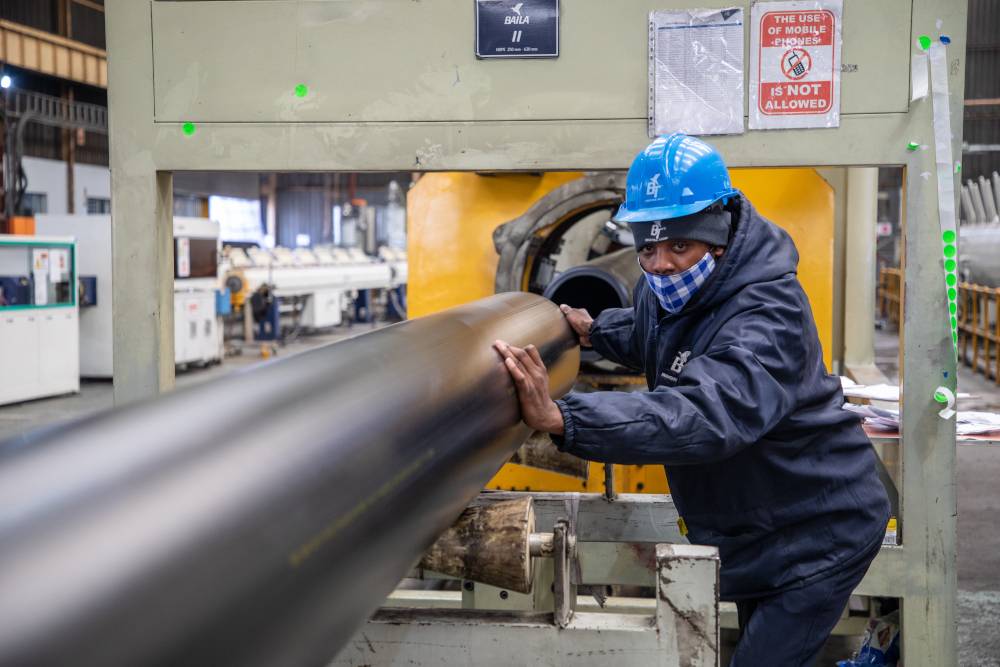 IDC support to BT has enabled the black-owned manufacturer of industrial products to expand its product range.
IDC support to BT has enabled the black-owned manufacturer of industrial products to expand its product range.
Baila Tlhantlhagane (BT) Industrial, incorporated in 2017, manufactures high-density polypropylene pipes for water infrastructure, optical fibre and polymer-based medical fabrics and components for clinical environments. The business operates three manufacturing units, namely pipe manufacturing, medical devices and engineering and business solutions. Its main customers are suppliers to the mining, agriculture and construction industries. The plastic pipes are used mainly for infrastructure applications such as:
- Water supply, mining (surface and underground)
- Agriculture/irrigation, high-temperature liquids and gases
- Corrosive water and effluents, dewatering, drainage and sub-soil drainage, protection of electrical and telephone cables, hydraulic transport and pipeline rehabilitation.
BT received funding from the IDC for plant expansion, which involved relocating to bigger premises, purchase of new machinery, installation of a solar system to support its energy requirements and working capital. The support will enable this black industrialist to boost production capacity of pipes and medical devices such as polypropylene insulin syringes and respirators. Another 142 employment opportunities will be added to the existing 83 employees.
BACS adds to pool of growing black industrialists
Established in 2017 by Sipho Batyi, Batyi Automotive Component Supply (BACS) is a tier 3 components supplier to Ford through its partnership with Motherson Sumi System, a tier 1 components supplier with more than 270 operations across the globe. BACS is involved in the manufacturing and assembly of automotive components, including the production of plastic injection-moulded sub-components, pressed steel sub-components and nuts and bolts.
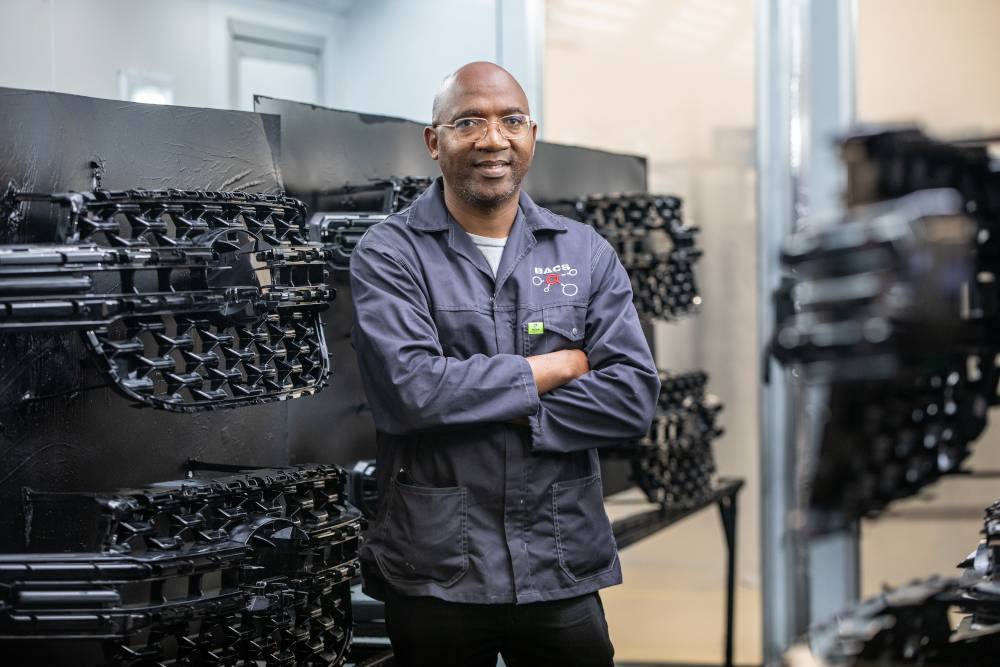 Sipho Batyi is the founder of Batyi Automotive Component Supply (BACS).
Sipho Batyi is the founder of Batyi Automotive Component Supply (BACS).
For the past five years, it has operated under the Automotive Industry Development Centre incubation programme, a government-led initiative promoting automotive industrial manufacturing by building automotive industrial parks and incubation parks to service original equipment manufacturers (OEMs). Through this initiative and its partnership with Motherson, BACS has graduated from the programme and now contracts directly with local automotive manufacturers.
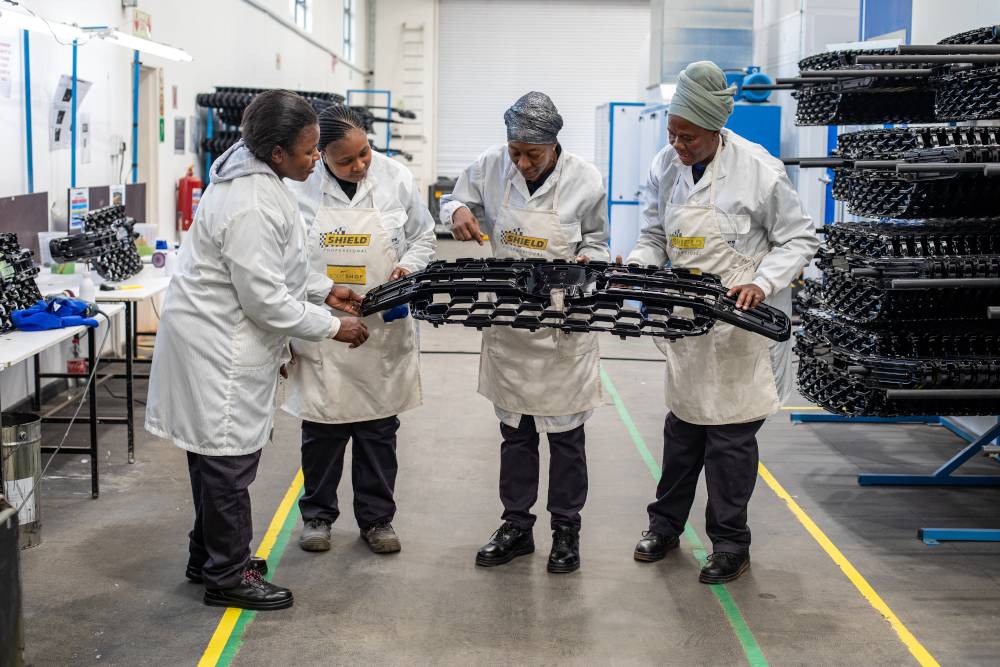 Funding support to BACS will boost the company’s production capacity – creating 78 new jobs in the medium-to-long term.
Funding support to BACS will boost the company’s production capacity – creating 78 new jobs in the medium-to-long term.
IDC funding will enable the company to expand its production plant, procuring and installing seven spray booth ovens that are critical to its growth objectives. This funding aligns with the automotive masterplan, which promotes localisation while deepening the participation of black-owned companies in the automotive value chain. Over the next five years, as this black industrialist moves closer to becoming a major components supplier to global automotive manufacturers such as Ford, 78 new jobs will be created.
A funding boost for KZN’s ARTSolar
Etablished in 2010, ARTSolar, based in Durban, designs and implements renewable energy solutions for medium- to large-size projects. One of only two local manufacturers specialising in high volume manufacturing of solar panels, it also supplies wind, biogas and thermal energy solutions. A solar manufacturing base in South Africa is essential for import replacement, as the REIPPP decrees that 35% of all photovoltaic modules installed by independent power producers must be locally produced, and 100% of those under Bid Window 5.
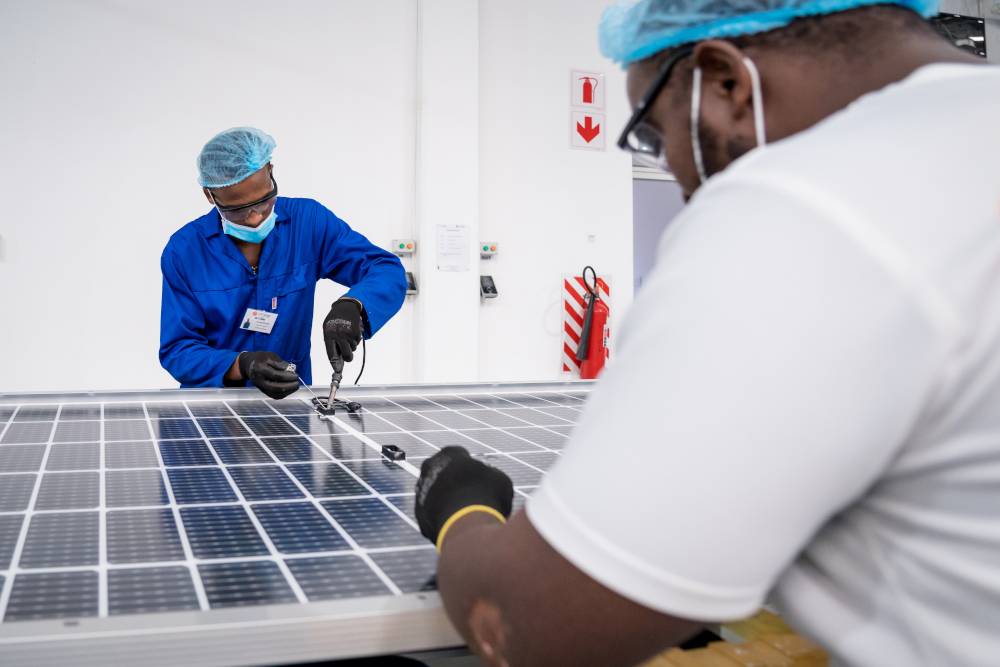 IDC funding will strengthen ARTSolar’s working capital and capex, enabling the company to upgrade its plant to a new M12 bifacial module photovoltaic manufacturing plant.
IDC funding will strengthen ARTSolar’s working capital and capex, enabling the company to upgrade its plant to a new M12 bifacial module photovoltaic manufacturing plant.
This equates to demand for local modules of 582MW under the Risk Mitigation Independent Power Producer Procurement Programme and 975MW under REIPPPP Bid Window 5, with a further 1 000MW photovoltaic capacity expected from Bid Windows 6 and 7. The IDC will assist the company with working capital and capex to achieve its upgrade to the new M12 bifacial module photovoltaic manufacturing plant. Funding will enable the company to grow its headcount from 52 to more than 200 in the long term.
Empowering a Limpopo-based youth
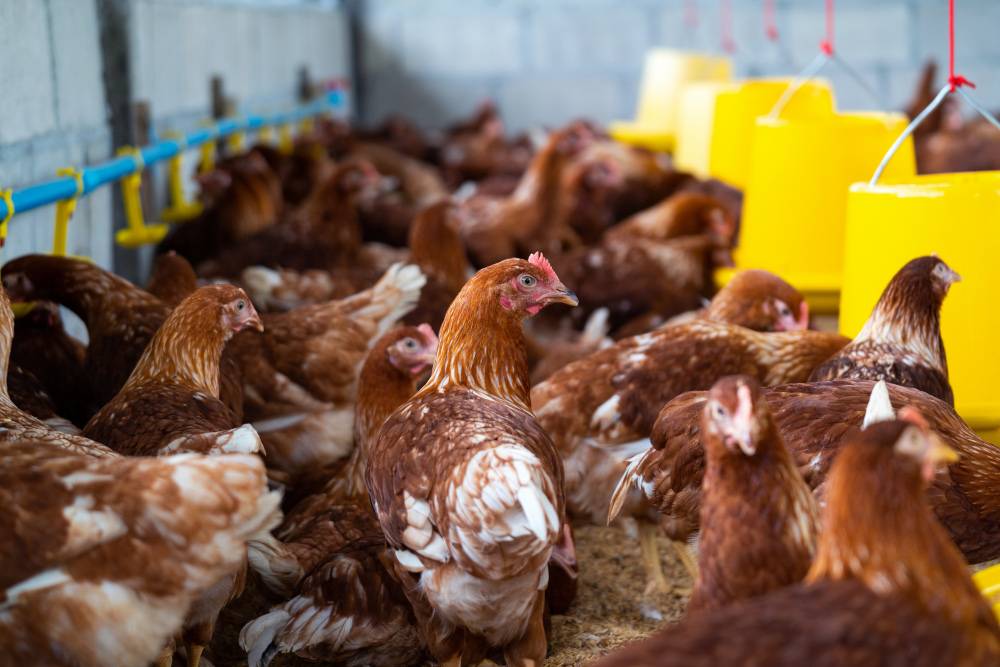 IDC investment in Northroost aligns with the Corporation’s support to the black-farmer empowerment objectives of the Poultry Masterplan.
IDC investment in Northroost aligns with the Corporation’s support to the black-farmer empowerment objectives of the Poultry Masterplan.
Northroost is a start-up commercial hatchery business in Makhado, Limpopo. The business is owned and operated by 28-year-old farmer Clive Tigere. Northroost supplies both the formal and independent markets in and around Limpopo.
Having started in 2017 in a home garage hatching 1 000 eggs a week, Northroost is now among the largest hatcheries in the province. Tigere entered into a strategic partnership with two established integrated poultry businesses, which provide his company with technical support. IDC funding will take Northroost close to 200 000 day-old chicks a week, making it the second largest hatchery in Limpopo. This investment aligns with the black farmer empowerment objectives of the Poultry Masterplan. The project is 60% black owned, with a 10% employee share scheme, and has created 22 jobs.